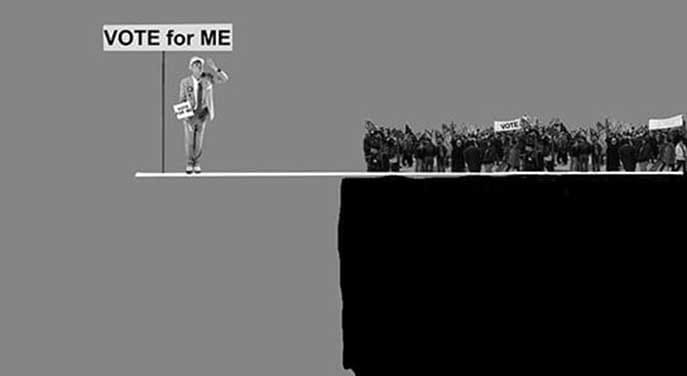 This column is being written a few hours before the final votes have been cast in the federal election. Canada’s next prime minister will be announced shortly. Nevertheless, I’m going to offer some personal observations of this nearly completed campaign that was historic, albeit for the wrong reasons.
This column is being written a few hours before the final votes have been cast in the federal election. Canada’s next prime minister will be announced shortly. Nevertheless, I’m going to offer some personal observations of this nearly completed campaign that was historic, albeit for the wrong reasons.
It’s been a pleasure writing about this election in Canada, the U.S. and the United Kingdom. It’s also been a pleasure speaking with talented media personalities like Arlene Bynon, Roy Green, Bill Kelly, Alex Pierson, Danielle Smith, Scott Thompson and Mark Sutcliffe, among others.
But this election hasn’t been a pleasure.
The anger, frustration, name calling, mudslinging, ridiculousness, personal accusations and general nastiness that Canadians have witnessed in this 40-day campaign (and before the writ was dropped) has been stunning.
Yes, politics is a blood sport. Campaigns and elections are brutal. Parties and leaders will do everything they can to gain an advantage over their rivals, win the public’s trust and take power.
You can’t be a successful politician today if you’re milquetoast. The political tire marks on your face and body will be permanently etched.
Nevertheless, this year’s election has been pretty sour tasting from start to finish. It won’t be placed on a pedestal where we pray to the political gods to let us do it all over again.
The funny thing is, the political gods must be crazy (with apologies to the popular 1980 film) because we’ll probably be back at the ballot boxes before long.
Nanos Research, Mainstreet Research, DART/Maru, and Angus Reid show Andrew Scheer and the Tories ahead by one to two points. Campaign Research, Abacus Data and Forum Research show Prime Minister Justin Trudeau and the Liberals ahead by one to two points, although EKOS is the outlier at four points. Leger has the Tories and Liberals dead even at 33 percent.
Even if you factor in a few smaller polling firms like Innovative Research and Research Co., which both have the Liberals slightly ahead, it’s too close to call.
Most signs point to either a Tory or Liberal minority government. Winning the most votes doesn’t mean a party wins the most seats. The Tories could earn the former, and the Liberals the latter – w hich puts Trudeau in the driver’s seat. If it’s the reverse, Scheer takes the steering wheel. If it’s only a 10 to 15 seat advantage for either party, all bets are off.
There are other intangibles.
What will Yves-François Blanchet and the Bloc Quebecois do if they win 40 to 50 seats? Will Jagmeet Singh and the NDP be kingmakers, or will they end up with only 25 to 30 seats (even with 18 to 20 percent of the vote) if they lose most close races? Will Elizabeth May and the Greens end up with a small handful of seats, but just enough to push Trudeau over the top? Will Maxime Bernier narrowly hold on to his Beauce riding, and save his People’s Party of Canada from likely extinction?
When you put it altogether, a close race could mean a minority government lasts only six to 12 months. That’s what I sense will happen, which means another mean-spirited and costly federal election will be in the making.
Unless we learn some lessons from the 2019 election.
For instance, we need to stop getting trigged when our politics gets dirty – because it’s always been a bit dirty, and we know it. While there were small amounts of discussion about domestic and foreign policy in this campaign, there needs to be a whole lot more to move the needle in one political direction or another. As well, while we can’t turn back the hands of time to revisit elections of years gone by, we can aim to do better in terms of better focus and articulation, reduced amounts of rhetoric and far less finger-pointing.
Will things change in Canadian politics? Time will tell.
Michael Taube, a Troy Media syndicated columnist and political commentator, was a speechwriter for former Prime Minister Stephen Harper. He holds a master’s degree in comparative politics from the London School of Economics.
The views, opinions and positions expressed by columnists and contributors are the author’s alone. They do not inherently or expressly reflect the views, opinions and/or positions of our publication.


